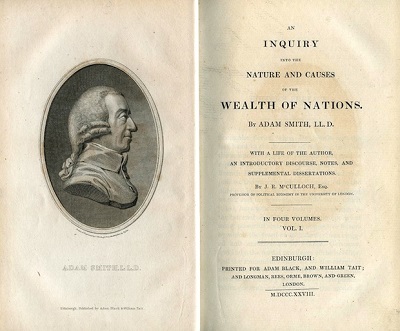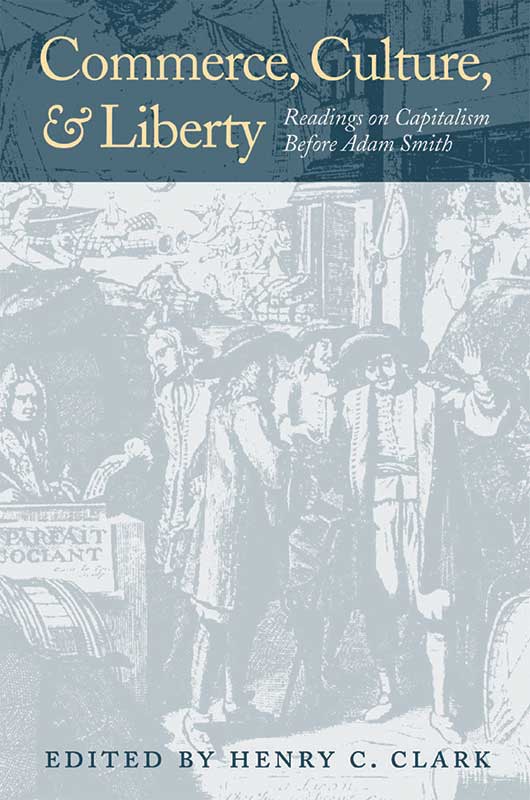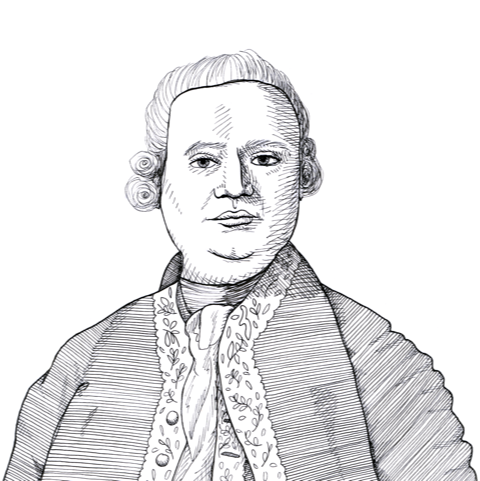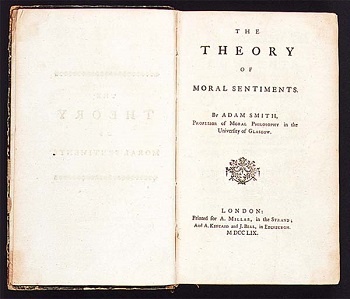
Part of: An Inquiry into the Nature and Causes of the Wealth of Nations (Cannan ed.), in 2 vols. An Inquiry Into the Nature and Causes of the Wealth of Nations (Cannan ed.), vol. 2
- Adam Smith (author)
- Edwin Cannan (editor)
Cannan’s justly famous early 20th century edition of Smith’s Wealth of Nations with his introduction and notes.
Related People
Key Quotes
Colonies, Slavery & Abolition
The sovereign himself can never have either interest or inclination to pervert the order of justice, or to oppress the great body of the people. In the capital his presence overawes more or less all his inferior officers, who in the remoter provinces, from whence the complaints of the people are…
Free Trade
There may be good policy in retaliations of this kind, when there is a probability that they will procure the repeal of the high duties or prohibitions complained of. The recovery of a great foreign market will generally more than compensate the transitory inconveniency of paying dearer during a…
Taxation
In France there are both stamp–duties and duties upon registration. The former are considered as a branch of the aides or excise, and in the provinces where those duties take place, are levied by the excise officers. The latter are considered as a branch of the domain of the crown, and are levied…
Free Trade
To expect, indeed, that the freedom of trade should ever be entirely restored in Great Britain, is as absurd as to expect that an Oceana or Utopia should ever be established in it. Not only the prejudices of the publick, but what is much more unconquerable, the private interests of many…
Education
The discipline of colleges and universities is in general contrived, not for the benefit of the students, but for the interest, or more properly speaking, for the ease of the masters. Its object is, in all cases, to maintain the authority of the master, and whether he neglects or performs his duty,…
Economics
In the payment of the interest of the publick debt, it has been said, it is the right hand which pays the left. [52] The money does not go out of the country. It is only a part of the revenue of one set of the inhabitants which is transferred to another; and the nation is not a farthing the poorer.…
Free Trade
Were all nations to follow the liberal system of free exportation and free importation, the different states into which a great continent was divided would so far resemble the different provinces of a great empire. As among the different provinces of a great empire the freedom of the inland trade…
Economics
By means of glasses, hotbeds, and hotwalls, very good grapes can be raised in Scotland, and very good wine too can be made of them at about thirty times the expense for which at least equally good can be brought from foreign countries. Would it be a reasonable law to prohibit the importation of all…
Education
The discipline of colleges and universities is in general contrived, not for the benefit of the students, but for the interest, or more properly speaking, for the ease of the masters. Its object is, in all cases, to maintain the authority of the master, and whether he neglects or performs his duty,…
Money & Banking
It would be too ridiculous to go about seriously to prove, that wealth does not consist in money or in gold and silver, but in what money purchases.
Connected Readings

What to read next.
Commerce, Culture, and Liberty: Readings on Capitalism Before Adam SmithHenry C. Clark



